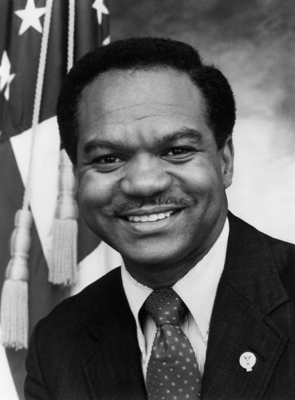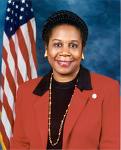To energize public support for robust health care reform, a civil rights icon and two House leaders are planning a hearing and rally Oct. 27 on Capitol Hill.
Their ambitious plan is to duplicate for health care the same kind of breakthrough legal reform achieved in civil rights by 1960s marches. Planners include the Rev. Walter Fauntroy of Washington, DC, who was the principal organizer of the 1963 civil rights march in Washington and of three 1965 marches in Alabama.
"From every poll," Fauntroy told me over the weekend in an exclusive interview, "it's clear that the people want an end to the tyranny of insurance companies. Insurers tyrannize doctors, they tyrannize patients. The news media have not focused on this. But the media won't be able to ignore common people crawling over the halls of Congress ├ " éČ and the nation's conscience will be pricked."
Another key planner is House Judiciary Committee Chairman John Conyers, Jr. of Detroit, who predicts a "disaster" for President Obama and other Democrats seeking re-election if they kow-tow to insurers by killing a strong public option. The result, he says, would be to force consumers to buy overpriced insurance that doesn't deliver enough benefits -- with blame for Democrats for years to come.
The third leader of the planning group is U.S. Rep. Sheila Jackson Lee of Houston, a senior member of the Judiciary Committee who will host the four-hour town hall hearing in the committee's Rayburn Building hearing room and develop its witness list in cooperation with colleagues.
I was among the two dozen or so House staff members, patients and their advocates, and journalists attending an informal, two-hour health care strategy meeting last Thursday convened by Conyers and Jackson Lee. For months, Conyers has presided over similar in-depth discussions at the Rayburn Building open to anyone in the public.
His purpose? To foster support among House staff and their bosses for a robust public option, and for the alternative single-payer plan that he's sponsored in the bill HR 676.
But his plans face powerful opposition from the insurance industry, plus virtually all congressional Republicans and many centrist Blue Dog Democrats. Also, such mainstream news outlets as the Washington Post for months have undercut his solutions, as in the Oct. 19 front-page story, "White House Aides Reaffirm Public Option Is Not Mandatory." Yet the paper's own poll -- and main front-pager the next day -- revealed: "Public Option Gains Support: Clear Majority Now Backs Plan."
Lessons from History
Fauntroy, 76, is a retired pastor whose five decades in civil rights provide rare first-hand experience on how to change national perceptions. That experience is especially relevant for those who believe that affordable health care is the key civil rights issue of our time in the U.S., which has a delivery system unique among industrialized nations in terms of high overal cost and restrictive access requirements.
In 1963, Fauntroy coordinated the Washington march on behalf of the Rev. Martin Luther King Jr., whose "I Have A Dream" speech paved the way for the 1964 Civil Rights Act. Similarly, Fauntroy helped his friend King's Southern Christian Leadership Conference and five other major civil rights groups plan the three 1965 Selma to Montgomery marches. The route (completed only on the third attempt) traversed Lowndes County, whose officials for years blocked its entire black population from voting via intimidation and arbitrary registration rules.



The Rev. Walter E. Fauntroy, left, was a member of Congress from 1971 to 1990. U.S. Reps. John Conyers, Jr., and Sheila Jackson Lee were first elected in 1964 and 1994, respectively
The Alabama murders of three protesters and the photos of police beating peaceful marchers on what became known as "Bloody Sunday" prompted national outrage that encouraged President Lyndon Johnson to lead passage of the Voting Rights Act of 1965. Passage was especially remarkable because Johnson had quietly persuaded Democratic Party segregationist leaders earlier in his career that he was their best hope nationally for maintaining their power.
"We had a very 'cooperative' adversary," Fauntroy recalls of the willingness of Alabama police in those days to show so vividly how they enforced segregation.
The Oct. 27 Plan
For Oct. 27, planners envision a public hearing at the House Rayburn Building. Conyers wants everyone who attends also to visit nearby congressional offices to counter insurance lobbyists. "This is not a fair fight we're in," he warns his allies.
Conyers was elected to his first term in 1964 and is himself one of the surviving elder statesmen of the civil rights era. Among other initiatives, he's a co-founder with Fauntroy of the Congressional Black Caucus.
Conyers presided over his strategy meeting Thursday with few comments. For the most part, he listened to others describe their ordeals in obtaining vital medical care even if insured. He noted that certain reforms being proposed to expand coverage won't be available to the public for three or more years. "Some of you," he joked, "will be in heaven by then."
(Note: You can view every article as one long page if you sign up as an Advocate Member, or higher).





